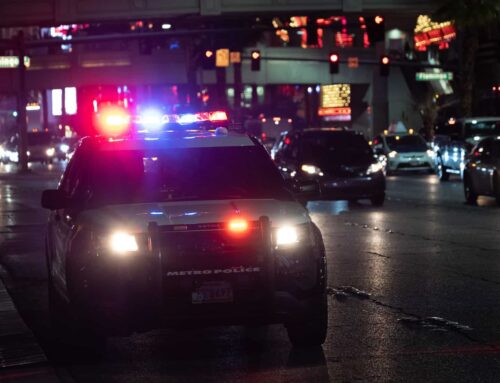Refuse Field Sobriety Test in California
Refuse Field Sobriety Test in California – Like other states, California has an implied consent law. The law takes to effect the moment you obtain a driver’s license. It will come to haunt you when you drive under the influence (DUI) in California. The law states that when you are pulled over and arrested by an officer for committing DUI, you consent to take a chemical test (blood, urine or breath- depending on the one that is available or applicable).
The purpose of the chemical test is to determine your blood alcohol content (BAC) – a way of proving that you are guilty of the offense. The BAC is measured as a percentage of the weight of alcohol in the person’s the breath or blood, grams of alcohol per 210 liters of breath or grams of alcohol per 100 milliliters of blood respectively. The following presumptions will follow the results:
- If at the time of testing, the accused has a BAC of less than 0.05 percent, the person is considered to be innocent of DUI
- If at the time of testing the accused has a BAC of less than 0.08 percent or 0.05 percent, other competent evidence must be accompanied to determine whether the person if guilty of DUI. The evidence may include FTSs exercise or assumptions such as a slurred speech, stumbles when walking, fumbles when looking for documents or was seen weaving within his or her lane.
- If at the time of testing the accused has a BAC of 0.08 percent or more, the person is guilty of DUI.
The test is performed at the time of the arrest where the peace officer advises you of the available choices, between testing for blood or breath. If the two test does not bear fruits, at the same time you smell alcohol or substance abuse, the arresting officer might request for a urine test – most a rare case. Drivers who are under heart condition treatment (using anticoagulants under the direction of a licensed surgeon or physician) or suffering from hemophilia are exempted from taking the blood test, but they are not exempted from the urine test.
In case you have violated the implied consent and you have a dire need medical assistance, then you will be transported to a medical facility, where you will be requested to take a urine test. Take note that you should not use your incapacitation as an excuse to commit a DUI, some officers or even the court might not take it lightly.
The implied consent law binds you to a preliminary breath test when you have been arrested. The results would be used to develop a reason that describes why you were driving under the influence. The preliminary test is at times optional if the officer becomes suspicious that you have been drinking and you refuse to take the test- the law will not be in your favor. Your refusal guarantees you an arrest and you will be forced to do all the available field sobriety test.
Preliminary Alcohol Screening test
Preliminary Alcohol Screening test (PAS) is optional for drivers older than 21 –prior to an arrest: in this case, it is used as a pre-arrest chemical test. Drivers on probation from a prior DUI conviction or minors cannot evade when they are pulled over for a DUI. It is used as a post-arrest chemical test when you have been arrested for a DUI. When compared to a Breathalyzer, the (PAS) is not reliable when the quantity of alcohol is required. One out of four who fail the tests have no intoxication but results were influenced by environmental conditions, improper timing or attire, just to mention a few.
If you submit to the PAS, the results will be used as evidence during the hearing; your refusal to take a PAS will also appear as evidence in your case. After you have been arrested for DUI it is better to submit to the PAS test and FSTs to avoid problems with the court system. It is rare that most people who pass Field sobriety tests are allowed to drive away. If the officers have less evidence on you, the will make the test hard to complete, for instance shining light in your eyes as you maintain balance on one leg.
If you refuse to take the chemical tests the peace officer will let you know that:
- You will be fined
- You will lose your driving license
- You could be convicted of a DUI and later sent to jail
The following are penalties for refusing to take a test:
| Refusal to take test | 1st Offense | 2nd Offence | 3rd Offence |
|---|---|---|---|
| License suspension | 1 year | 2 years | 3 years |
| Fine | $125 | $125 | $125 |
The second and third offense have increased suspension if the refusal occurs within 10 years of a separate violation. Acting on behalf of the department, the peace officer shall arrest you and serve you with a form notice which orders the suspension or revocation of your privilege to operate a motor vehicle. The officer will take your driver’s license, and issue you a temporary driver’s license which is valid for 30 days from the date of arrest.
The arresting officer will submit the report and the documents to the department. The retained specimen will be forwarded to the forensic laboratory and the results of the chemical tests will be out within 15 calendar days from the date of your arrest. The 15 day period is also the time given for the offender to request a hearing.
The peace officer will advise you that you do not have the rights to an attorney until you decide if you are willing to submit to the field sobriety test or not. If you chose to refuse, then the officer will use your statement against you in the court of law. The consent law also applies when you are dead, the peace officer is responsible for administering these tests.
Refusing the field sobriety test does not guarantee that you won’t be convicted if there is proof that your BAC was over.08% and you are above 21 years; you will be found guilty of committing a DUI offense. In the court, the prosecutor might use your refusal as a pot of hiding evidence that you were indeed intoxicated.
Evidence
The police officer will start looking for evidence the moment he or she pulls you over on suspicion of DUI. The evidence will come from you if you do not limit your words or if you are an open book. Body language is one of the tools that most officers of the state use, so the moment they request you to step out of the car, the evaluation begins.
You are required not to admit to drinking and driving before an arrest is made since you are not under the Miranda. Saying after or before the test is the safest bet against statements that may be used against you in the hearing. When deciding whether to take the tests or not, it is advisable to avoid changing your mind because when you refuse to take the tests and then later cooperate, the officer may decide to record it a still under the field sobriety test refusal conviction.
The officers may seem nice to make you believe that they are trying to help you out of the situation, but that is not the case; they use communication strategies to gain your trust and make you expose the truth. Answering most of the officer’s questions provides enough evidence such as your drinking pattern. You may prevent an arrest if you remain polite, courteous and respectful to the peace officer in terms of speech and actions.
Field sobriety tests are designed to test your ability to maintain attention and skill when operating a motor vehicle. Some of the tests might include mandatory Roadside Agility Exercises – mental and physical.
The reliable Standardized field sobriety tests exercises include:
- The one leg balance
- The walk and turn test (nine heel-to-toe steps in a straight line)
- The horizontal gaze nystagmus test (HGN) – deals with the eyes
The battery of Field Sobriety Tests:
- Hand Pat Field Sobriety Test
- Finger-to-Nose Field Sobriety Test
- Rhomberg Balance Field Sobriety Test
- Finger Count Field Sobriety Test
- The alphabet or number backward recitation
The officer will evaluate your performance based on accumulated scores. You get points when your body sways, use your hands for balance or fail to remember or follow the instructions of the test. When the points exceed or reach the cutoff level, the officer will consider you impaired.
According to sources, the accuracy of FSTs in detecting the level of intoxication is 77%. Defense toxicologists consider the PAS useful for detecting the presence of alcohol in the system. The police use these tests to gauge your knowledge on the DUI since the police reports do not say that a person has passed the tests. The results of the tests are just subjective: it up to the officer to decide whether you pass or fail.
Most of the people who have passed the field sobriety test charges DUI charges have presented a full record of the events just before being stopped and after being released from custody. They have also used their rights of three complete phone calls to seek help and also leave a voice message in their cell phones to be used as evidence when the prosecutor brings up the slurred speech topic.
Another advantage of recording each conversation is that you can prove whether you have been advised by the police officer that your refusal to take a chemical test after arrest might lead to consequences or additional penalties. This is your one of your strong defense that can get your charges excused.
If you are convicted for as a DUI offender for refusing to take field sobriety test, you will be liable for mandatory education programs which were introduced to educate you on the dangers of driving under the influence.
| 1st offender | 2nd offender | 3rd offender | |
|---|---|---|---|
| Program Duration | 9 months | 18 months | 30 months |
| Alcohol and drug education program | 60 hours | 12 hours | 12 hours |
| Group counseling program | 60 hours | 52 hours | 78 hours |
| Community service | 6 hours | 120-300 hours | |
| Individual interviews | Biweekly first 12 months | Close and regular |
DUI schools offer different types of programs, lengths, and costs. Depending on your location, the 30-month program can cost you approximately $3,000 while the 12-hour classes go for around $200. California does not have provision for online classes, so you have to avail yourself personally.
When your license is suspended you are not eligible for a restricted or temporary license when you refuse to take any of the available chemical tests. You will remain disqualified even in subsequent offenses. If you are not capable of paying for the classes, there is a fee waiver – to be eligible you must submit your financial documents as proof of your income.
If you get a repeat offender class you are supposed to start all over again and that includes payment and attendance. Therefore, previous DUI class hours do not count in your current program. Skipping cases and failing to complete the DUI program is violating your probation terms. The court will issue a warrant for your arrest.
Other consequences include:
- Probation terms and conditions modification (the court can extend the length of your probation)
- The court might send to jail before being allowed to participate in another probation program or terminate your probation entirely and impose a maximum jail sentence.
Instead of the jail term, the prosecutor can suggest an alternative such as the Secure Remote Alcohol Monitoring Device (SCRAM) which measures alcohol content present in your sweat. The machine notifies the prosecutor when you consume alcohol. In court, you have to make the jury and the judge believes that you are innocent by refusing to take a field sobriety test. If you are sincere and innocent, then chances are the court will be in your favor.
In California, if you have been arrested on a DUI charge after refusing a field sobriety test, you would need a lawyer who is knowledgeable about your state’s laws and about the condition that you are in. DUI conviction has serious consequences and you might not be successful to fight these charges alone.
An experienced California DUI attorney with reliable knowledge in the California criminal law system should know about the art of negotiating with prosecutors for a favorable plea. If there is some weakness to the DUI charge, due to credibility issues with the testimony of the arresting officer, you may plea bargain your case to an exhibition of speed or wet reckless. Lack of sufficient facts can get you reduced charges during your hearing.
Your attorney may advise you to take the blood test since it can be retested in a private laboratory. However, there are cases of bacteria growth and microscopic decomposition which might affect the results. The breath test is permanent on the machine and this does not give you the rights to contest the results.
It is also important that you take only one test so that you do not voluntarily provide the arresting officer enough evidence to use against you during the trial. The less the evidence against you, give you attorney less task in defending you in court. If the police officer did not have probable cause, your charges will be dropped in the event that your attorney will use this as a defense during your case.
When you get convicted with a wet reckless or exhibition of speed, you get light penalties such as lowered maximum fines, zero mandatory jail sentence, less probation time and no court imposed license suspension. You will only have to complete the court ordered DUI programs.
Select Insurance Group is on the forefront of providing liability insurance and information concerning DUIs in California. Refusing field sobriety test makes you a high-risk driver. We are ready to help you win your cases with proof of financial responsibility.
If you have questions, don’t hesitate to call: (855) 438-7353. One of our licensed agents will help you right away.






